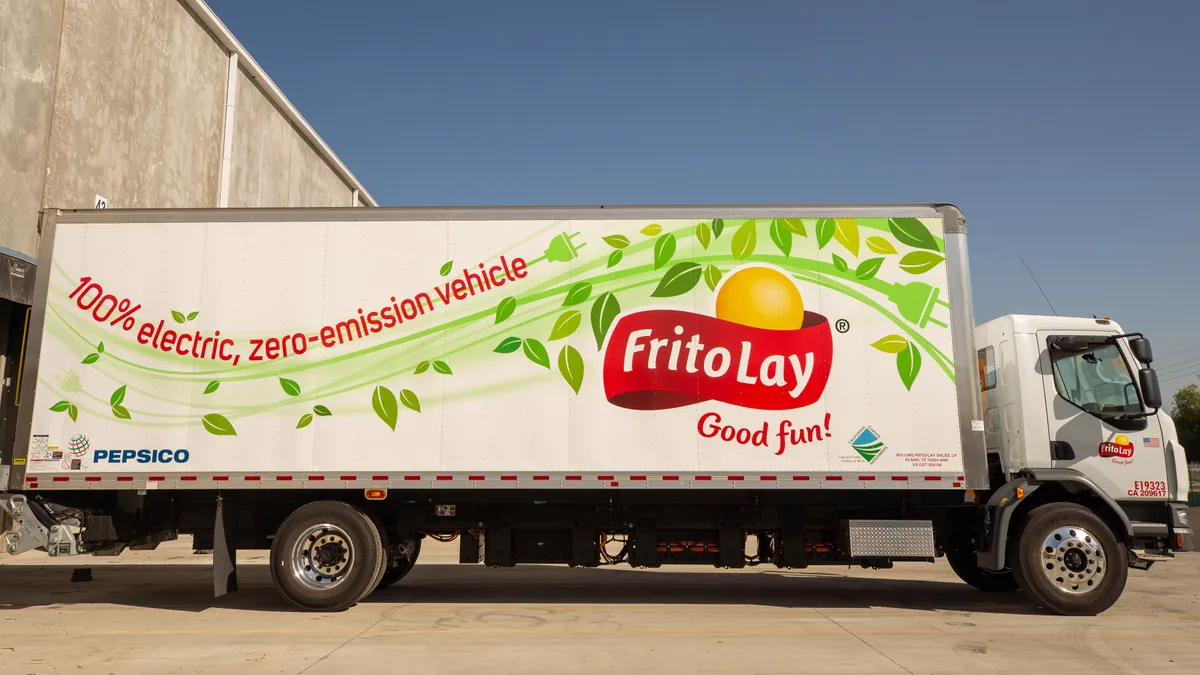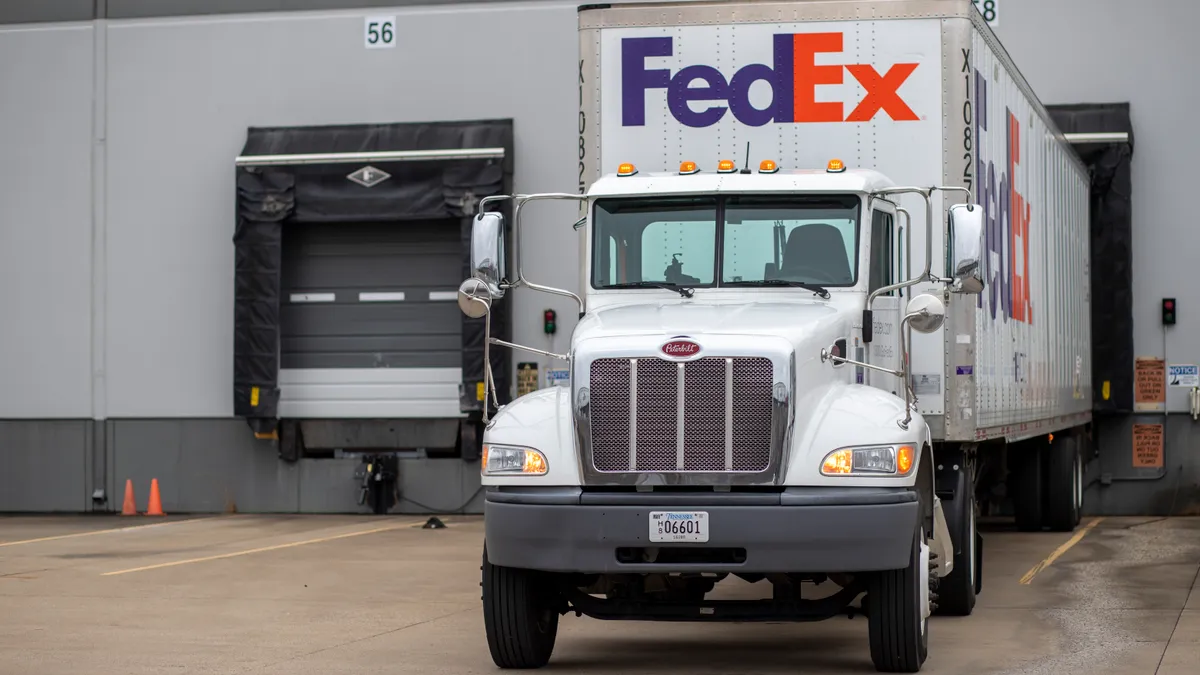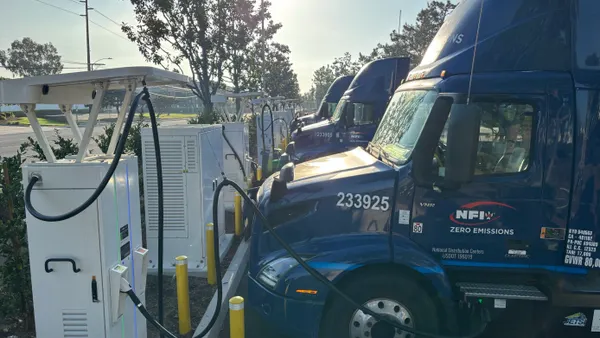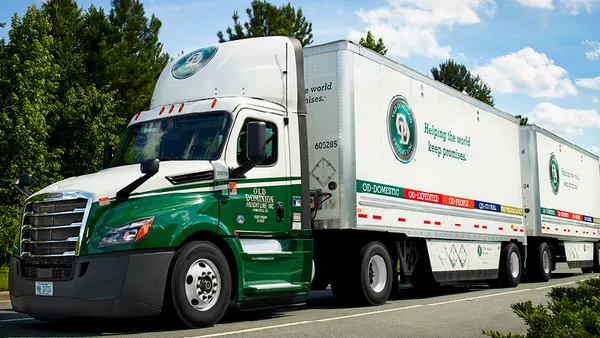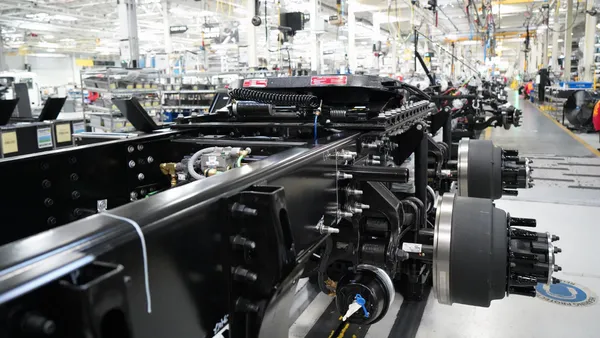Dive Brief:
- Having a private fleet has been an advantage for Frito-Lay during the pandemic, said Laura Maxwell, senior vice president of supply chain for PepsiCo Foods North America, as trucking firms face tight capacity and challenges recruiting enough drivers.
- Demand increased for the brand's products as consumers stayed at home. "We were able to increase capacity in all parts of the supply chain in order to meet that increasing demand," Maxwell said in an interview.
- The consumer-packaged-goods brand has more than 22,000 vehicles across PepsiCo Foods U.S. and a team of OTR drivers. Frito-Lay also partners with hundreds of third-party carriers in addition to utilizing its private fleet and drivers.
Dive Insight:
Some trucking firms have noted increased interest in private fleet conversion. But to successfully make that sale, the potential client must see more benefit in a third party handling logistics than in operating its own trucks.
Frito-Lay operates one of the largest private fleets in North America, though it does use contracted transport as a supplement, depending on the location or "as the business ebbs and flows," Maxwell said. Frito-Lay saw its private fleet and team of drivers as a plus during times of a tight trucking market, and that makes full conversion to dedicated or contract carriage less desirable.
Fleets often see interest in conversion from shippers because the costs and resources of operating a fleet in-house become too great. J.B. Hunt set a record lat last year for the number of engineering design requests it received in one month.
Several supply chain managers have noted a desire for consistency and guaranteed capacity, whether through a private fleet or contracted transportation. Transport firms can often offer more agility to redirect resources or assets than a private fleet, depending on where demand is, which is why some shippers use a combination of contracted and in-house transportation.
"We allocate resources and our mix based on the needs of our network," Maxwell said. "Regardless of where the consumer is, we have to be flexible to follow them."
Another benefit to owning a fleet is having complete control over aspects such as emissions. PepsiCo set a goal to reduce emissions by 75% in direct operations and 40% in the indirect value chain by 2030. Plus it's working toward net-zero emissions by 2040. Fleet efficiency is a contributing factor in cutting back on the carbon footprint. At Frito-Lay's site in Modesto, California, the company has reduced greenhouse gas emissions 53% and cut diesel usage 78%.
Owning a fleet allows a company to choose which equipment transports its goods. In North America, Frito-Lay's fleet includes more than 650 CNG trucks, according to a fact sheet updated in February 2020. Its parent, PepsiCo, has allocated more than $110 million to transition the fleet to lower-carbon models.
For shippers that have poured investments into lower-emissions technology, conversion lacks appeal if the fleet isn't able to align with shippers on green goals.
Correction: PepsiCo's site lists outdated sustainability goals. The company has provided more current metrics.



